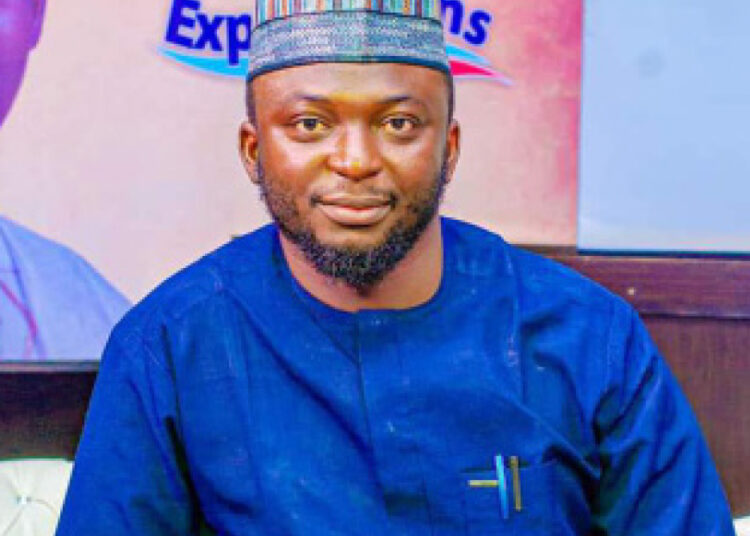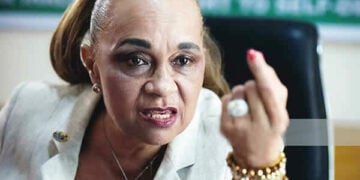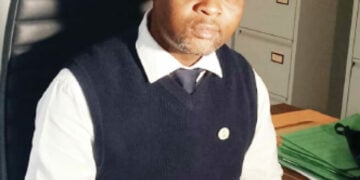Your team recently had a four-day retreat in Abuja, what is the idea behind tit?
Of course, retreats are usually organized to get all staff together to reflect on what had transpired over the year and that is what we just did. We had a successful year in 2024. That was the year we received two national awards and we received the highest imbursement that the state had received at a single time for any programme. So, it was a moment of reflection and the real icing on the cake for last year was the people that we were able to reach with the funds that we received in the state. There were more than 800,000 beneficiaries who either benefitted from the cash transfer public works or were part of communities that benefited from community infrastructure, basic community infrastructure in terms of school renovations, primary healthcare renovations, building and other key sectors.
We also have the agricultural component. Many communities benefited from road infrastructure which is the rural roads spanning across all local government areas at least 10km of rural roads in addition to infrastructure. We have at least three wet markets (for perishable food crops) infrastructure, which every local government benefited from. We gave fertilizers and assets to 15,000 individuals and that was part of what culminated to over 800,000 beneficiaries that we were able to reach in a single year.
Are there mechanisms in place for your team to go back to the communities to review the impact of the programme on the lives of the 800,000 beneficiaries?
Definitely. We have a standard operating procedure (SOP) in terms of monitoring and evaluation. We also go back to the community to admonish them on sustainability and one good thing about our project is that they are community-driven from the start to the finish. The communities are actively involved in decision making, implementation and they are also very much involved in the sustainability of the projects. That is why for every of our projects, we carry the communities along and that is why we don’t have underutilized projects. Every of our projects, we give back to the community because it is the community’s need. Whenever you give them what they need, of course they will utilize it and they will guard it jealously. I think that is working for us. I wouldn’t say it’s 100 percent but for areas where there are issues, we also have a grievance committee within the community so that they can resolve some of these grievances. We also have a monitoring committee apart from our own committee.
What are your goals for 2025?
Before the goals, I also want to acknowledge that last year, we lost a colleague who was really a backbone to NG-CARES who is the former SVC, the late Hassan Yahaya Egwa. We also reflected on his own impact and gave him a posthumous award to honour his memory. He was a civil servant; a professional civil servant. Now, for 2025, the programme is coming to an end but there is an additional programme but it has eligibility criteria. Not all states are built to even participate in the next programme. So, our goal this year is to qualify the state to be able to participate in the next programme and also to conclude on everything we have started. .
How would you say your organization’s interventions align with the developmental aspirations of Nasarawa State governor, Engr Abdullahi Sule and the Renewed Hope Agenda of the present administration?
Of course, there is perfect alignment and the programme is a national initiative and it perfectly aligns with the renewed hope agenda as well as what we do for the communities. For the state, in this programme, there are about 11 interventions. So, out of the 11, every state was given the opportunity to look into the interventions and see how it aligns politically. When we came in, we were able to identify 7 areas; not we as an organization but the governor selected 7 in line with his own aspirations which align with his own NEDS document which was why we adopted the 7 and we are implementing them. You know our state is very big on agriculture which was why we had four interventions in agriculture and then, we are also so deep in social protection rights which is why we have three that have to do with community development, and building basic infrastructure around. So, everything we do in the programme perfectly aligns with the agenda of His Excellency, Governor Abdullahi Sule and the Renewed Hope Agenda of Mr President, His Excellency, Bola Tinubu.
What were your major challenges in 2024?
I think the biggest challenge for us last year was the shock of losing one of our own. I mean, we can’t jump into conclusion, even the circumstances of his demise, you know, could demoralize people and everyone working in this programme because he was attacked at his home. Notwithstanding, we had to take a break and go back because you have to fight for the living. If you are alive, you have to also fight for those who are really helpless.
Our second challenge was the fact that we could not really concentrate on our SIFTAS issues like I said, gender-based violence issues in the communities, environmental issues which is part of the things we are going to do going forward. We also dropped a bar in terms of our position in the programme from the first to second and so, this year, we want to go back to the leading position in the entire country.






